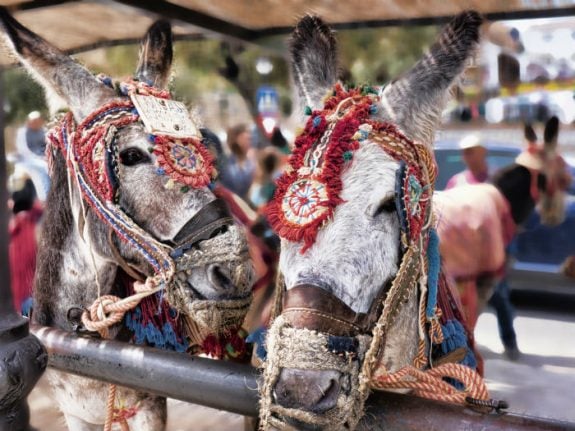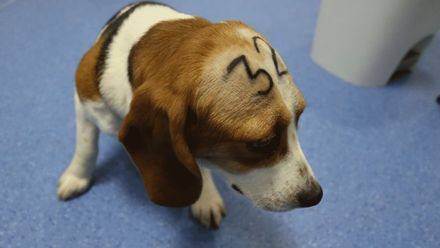The traditional “donkey taxis” have been running since the 1960s when local farmers worked out that tourists would pay to be transported by their beasts of burden on tours round the village.
But finally after years of campaigning, the town hall is poised to introduce a raft of new measures to improve the welfare of the town’s donkeys and that includes setting a weight limit on what they are allowed to carry.

The new bylaws will ban anyone over the weight of 80kg (12 and a half stone) from taking the donkey taxi, in what is being viewed as a compromise between animal rights activists who want the donkey taxis outlawed altogether and the muleteers whose livelihoods depend on the them.
The new measures, which will be effective from 2020 depending on a public consultation and final council vote, will introduce regular veterinary checks and improved welfare conditions with compulsory rest breaks, shade and refreshments and an improved stabling area.
One of the key points is a ban on anyone riding the donkey if they weigh in at over 80kg.
Animals rights groups claim the animals should not carry anything over a third of their own body weight.
The measures were drawn up “in consultation with both the muleteers and different animal welfare groups,” explained Nicolás Cruz, the local Councillor for Transportation and Mobility in Mijas.



 Please whitelist us to continue reading.
Please whitelist us to continue reading.
Member comments